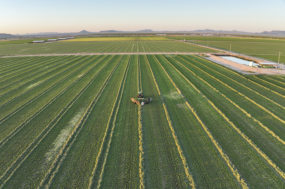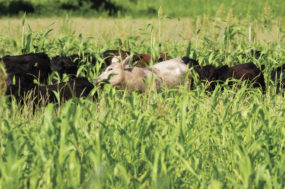As Virginia extension agent Cynthia Gregg and our program leader Dr. Bobby Grisso say, “If you think about it, you take precautions every day, not just when an emergency occurs. For instance, you wear a seat belt in the car just to protect you in case of an accident.
You make your children wear helmets when they ride their bicycles. You double-check your iron to make sure it is unplugged. Preparing for emergencies is not new.
Your grandparents probably had extra supplies, such as soap and shampoo in the bathroom closets, onions and potatoes stored in the basement and canned goods on pantry shelves. They understood the value of having a little extra on hand in case of emergencies.”
One situation that is occurring in Virginia (and may be happening in your area as well) is that a growing number of our neighbors are new to the state.
They do not have a history of the area to draw upon. It is also safe to say that as this continues, a growing number of emergency responders hale from this demographic, so they may not be familiar with your farm and home when you call for help.
Recently, we had a training session for fire and emergency personnel to learn techniques of on-farm rescue and machinery extraction. It was an eye-opener to hear how unfamiliar many of the younger volunteers were with the equipment, how it worked and what its purpose was on the farm.
Emergency preparedness is therefore a two-way street. It is wise to take a proactive stance on the farm to teach everyone on the farm what to do (or not do) and who to call. A list of pertinent phone numbers needs to be collected, and the entire farm needs to know where that list is.
By the same token, it is also wise to personally visit with the agencies on your list. Invite them to come out to your farm and learn about your operation. Inform them about the hazards you know to exist; fire suppression techniques for Harvestore structures comes to mind.
Your insurance provider may also like for you to allow the invited agency to do a risk assessment during their visit. Acting upon such an assessment may lower your insurance rates as well as improve an overlooked situation on your farm.
When you are considering extending an invitation to your farm, it is advisable to consider the local or county dispatch office as well. There are times when county lines and municipal limits may interfere with prompt responses to your call for help. Let them know who and where you are.
Do they consider the proximity of your farm to the closest responder? Can you or the one placing the emergency call on your farm request a specific department to respond?
Our farm has this specific issue. Our phone number and mailing address are generated from a town in a neighboring county; however, our physical location is in another. We had a fire call on the farm in March 1993 following the great blizzard that struck the Eastern seaboard a few days prior.
A neighbor who saw the fire called 9-1-1, and the county dispatched the closest in-county responder. The neighbor then called Mom and Dad, who called the responders in the town that knew our operation.
The town crew had put water on the fire for more than 20 minutes when the county responders arrived. This is not to say the county crew was negligent; they just had farther to travel and really had no idea where they were being sent.
There are several online tools that can help you develop a plan for emergencies in both your farm and home. The authors of one such tool are mentioned earlier.
Gregg and Grisso’s work, “Preparing for an Emergency: The Smart Thing To Do” is available at Virginia State Cooperative Extension and there are literally hundreds of similar publications to guide you in the process.
I suggest that you always stick to “.gov” or “.edu” sites when searching the Internet for information to be sure you get the most reliable, unbiased information without being subjected to a sales pitch and personal opinions.
Hopefully, you’ll never have to use your plan or call on the emergency personnel in your community; however, as time goes forward, as any Boy Scout will tell you, it pays to “be prepared.” FG
Andy Overbay holds a Ph.D. in ag education and has more than 40 years of hands-on dairy and farming experience.

Andy Overbay











